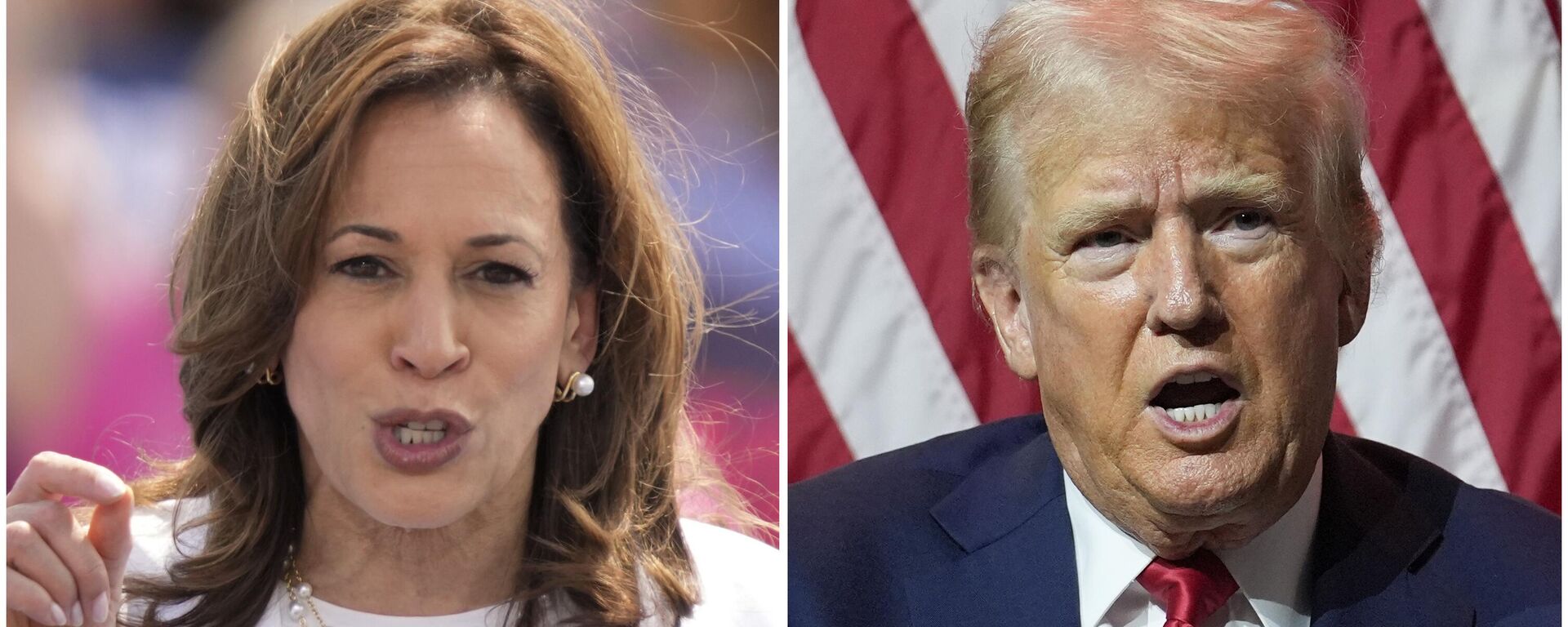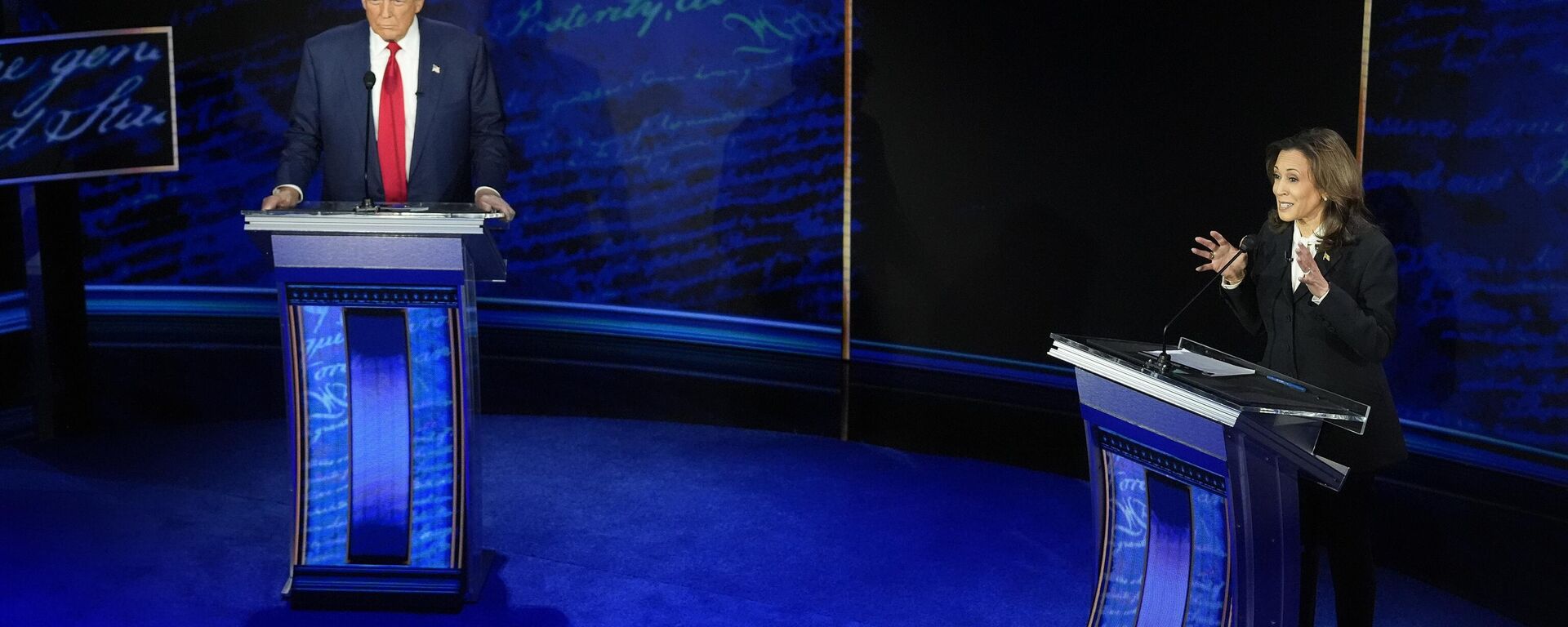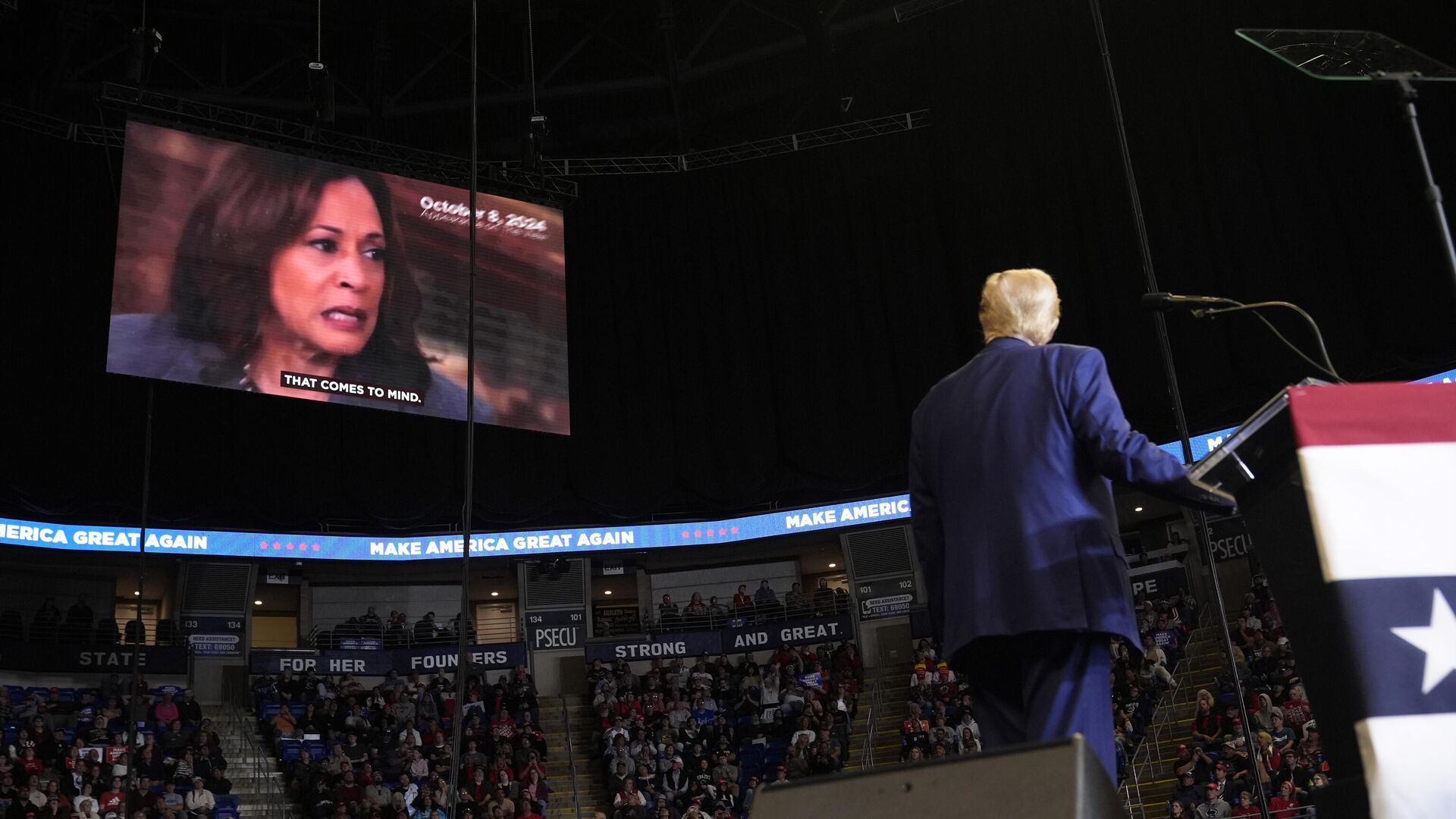https://sputnikglobe.com/20241031/69-of-americans-frustrated-anxious-over-looming-election-as-media-whips-up-fears-of-violence-1120737778.html
69% of Americans ‘Frustrated’, ‘Anxious’ Over Looming Election as Media Whips Up Fears of Violence
69% of Americans ‘Frustrated’, ‘Anxious’ Over Looming Election as Media Whips Up Fears of Violence
Sputnik International
Americans and much of the world are holding their breath in anticipation of next Tuesday’s presidential election, with the vote expected to have implications not only domestically, but globally.
2024-10-31T14:27+0000
2024-10-31T14:27+0000
2024-10-31T14:27+0000
americas
americans
donald trump
kamala harris
us
election
2024 us presidential election
democrats
republicans
vote
https://cdn1.img.sputnikglobe.com/img/07e8/0a/1f/1120738453_0:161:3068:1887_1920x0_80_0_0_67719d353f1182021c99d7617342ab98.jpg
Nearly seven in ten Americans are feeling ‘frustrated’ and ‘anxious’ as Election Day nears, fresh polling released Thursday by the AP-NORC Center for Public Affairs Research suggests.Querying adult respondents on the emotions they’re feeling ahead of the November 5 vote, the pollster also found that 75% are “interested,” and 36% “excited.”The new polling comes toward the tail end of the US’s long, grueling presidential cycle, with the 2024 race in particular proving a highly stress-inducing environment full of mutual recriminations and divisive rhetoric, a last-minute candidate swap and two assassination attempts.Separate polling published this week by the American Psychological Association found that 56% of adult Americans fear that the 2024 election could culminate in ‘the end of US democracy’, while 72% are concerned that the results could lead to violence.The media has played up election-related fears as best it could in recent weeks and months, with mainstream outlets and political thinktanks from Vox, Politico and CNN to Forbes, Foreign Policy magazine and even the Council on Foreign Relations writing about the prospects of “political violence” and even fueling fears of outright “civil war” in a campaign already fraught with division and fears, primarily among Republicans, of voter fraud in swing states.The latest RealClearPolitics average of polling shows former president Trump ahead of his Democratic rival both nationally and in most battleground states, including Georgia, North Carolina, Pennsylvania and Arizona, Ohio and Nevada, although Harris has the lead in Michigan, Wisconsin, Minnesota, Virginia and New Mexico. Under the US’s electoral college system, the candidate with the most electoral votes, not the winner of the popular vote, becomes president.
https://sputnikglobe.com/20241028/trump-vs-harris-secessionism-and-polarization-on-rise-in-us-1120710422.html
https://sputnikglobe.com/20241030/trump-vs-harris-who-are-the-big-money-players-supporting-the-candidates-and-whats-soros-game-1120726212.html
americas
Sputnik International
feedback@sputniknews.com
+74956456601
MIA „Rossiya Segodnya“
2024
News
en_EN
Sputnik International
feedback@sputniknews.com
+74956456601
MIA „Rossiya Segodnya“
Sputnik International
feedback@sputniknews.com
+74956456601
MIA „Rossiya Segodnya“
what will us elections decide, who's winning trump or harris, are americans nervous about election, what do americans fear
what will us elections decide, who's winning trump or harris, are americans nervous about election, what do americans fear
69% of Americans ‘Frustrated’, ‘Anxious’ Over Looming Election as Media Whips Up Fears of Violence
Americans and much of the world are holding their breath in anticipation of next Tuesday’s presidential election, with the vote expected to have implications not only domestically, but globally, given Washington’s long-held policy of fomenting and fueling conflicts across the globe, from Ukraine and the Middle East to Asia.
Nearly seven in ten Americans are feeling ‘frustrated’ and ‘anxious’ as Election Day nears, fresh polling released Thursday by the AP-NORC Center for Public Affairs Research suggests.
Querying adult respondents on the emotions they’re feeling ahead of the November 5 vote, the pollster also
found that 75% are “interested,” and 36% “excited.”
‘Anxiety’ is reportedly highest among Democratic voters, eight in ten of whom expressed the emotion, compared to 75% during the 2020 cycle. Among Republicans, two-thirds said they were anxious, compared to 60% four years ago. Anxiety levels were apparently left unchanged among independents between 2020 and 2024, with about half of respondents expressing the emotion during both cycles.
The new polling comes toward the tail end of the US’s long, grueling presidential cycle, with the 2024 race in particular proving a highly stress-inducing environment full of
mutual recriminations and
divisive rhetoric, a
last-minute candidate swap and
two assassination attempts.

28 October 2024, 18:30 GMT
Separate polling
published this week by the American Psychological Association found that 56% of adult Americans fear that the 2024 election could culminate in ‘the end of US democracy’, while 72% are concerned that the results could lead to violence.
69% of those surveyed in the APA study similarly deemed the election a significant source of stress in their lives – up from 68% in 2020 and 52% in 2016. 77% listed “the future of our nation” as a major stressor, with the economy also making the top three, with 73% of respondents saying the issue makes them stressful.
The media has played up election-related fears as best it could in recent weeks and months, with mainstream outlets and political thinktanks from
Vox,
Politico and
CNN to
Forbes,
Foreign Policy magazine and even the
Council on Foreign Relations writing about the prospects of “political violence” and even fueling fears of outright “civil war” in a campaign already fraught with division and fears, primarily among Republicans, of
voter fraud in swing states.

30 October 2024, 15:00 GMT
The latest RealClearPolitics average of polling
shows former president Trump ahead of his Democratic rival both nationally and in most battleground states, including Georgia, North Carolina, Pennsylvania and Arizona, Ohio and Nevada, although Harris has the lead in Michigan, Wisconsin, Minnesota, Virginia and New Mexico. Under the US’s electoral college system, the candidate with the most electoral votes, not the winner of the popular vote, becomes president.




